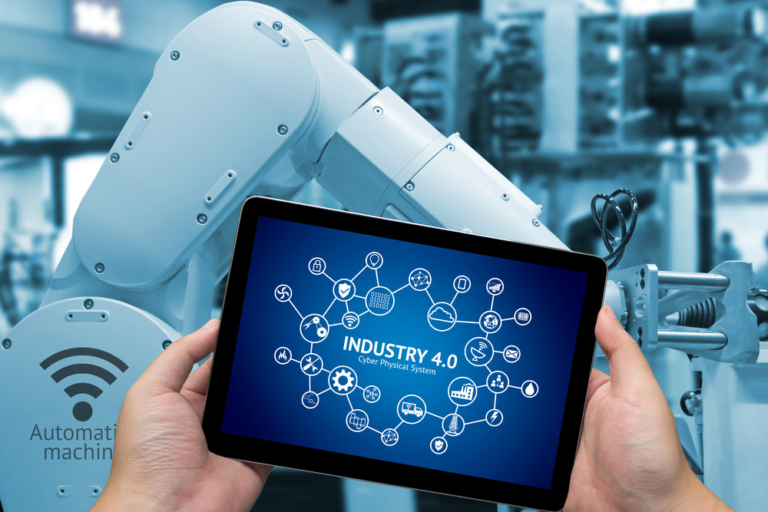
Nowadays, in the IT and Manufacturing fields there is a concept that resounds everywhere: every economist, politician, politic, journalist, analyst, expert, engineer talks about it using any type of media like television, radio, seminars, summits workshops and so forth.
We are talking about Industry 4.0 and every terms linked to it, such as Smart Factory, Smart Manufacturing, Big Data, Internet of Things, etc.
Industry 4.0 originates in Germany in 2011 from a project of the German government to promote the computerization and innovation of manufacturing. In these years, German companies have put into practice this theory with successful results, becoming the symbol of Smart Factory. Italy, despite has started to talk about Industry 4.0 some years later, it is ready to reach the same results. However, this can be possible only if the Italian companies open themselves to innovation; and Italians, on subjects like flexibility, innovation and technology, can teach to other rather than learn.
In this white paper, Open Data–Italian software house that develops IT tools for the management of manufacturing operations – wants to highlight the meaning of Industry 4.0 giving to it a practical connotation that can transform this theory, which seems so far from reality, into an approach that will be the focus of companies’ management in the next years.
Let’s start with the definition of Industry 4.0. What does it mean?
Industry 4.0 refers to the fourth Industrial Revolution. After the steam, electricity and IT, this time is Internet that is going to totally change the production system. Thanks to the so called Internet of Things and cyber physical systems, it is estimated that, in 2020, at least 60 billion intelligent objects will be online.
This is the heart of the Smart Factory: the real time connection between humans, machines and objects; a concept that is far away from the innovative process Information Technology of the last century…
The challenge of the Smart Factory is to take on the variability and the uncertainty of the entities involved in the supply chain, from the supplier to the customer, by taking into account all the entities, conditions and situations like production line, times, breakdowns,delay, change in technology, and so on.
A Smart Factory shall be able to adapt itself in real time to the market requests in order to become as competitive as possible. In order to obtain this, a fluid and constant communication is necessary: from the market, to determine what has to be manufactured, and from the floor to coordinate the activities and to promptly react to unexpected events. In this environment, every cyber physical entity will be able to work intelligently and perform
the required activity at the maximum efficiency.
How can this turn into practice? What does implementing Industry 4.0 mean?
At first glance, the concepts above mentioned can be fascinating but can remain very theoretical. This makes the understanding of what implementing Industry 4.0 in your factory mean very difficult.
Industry 4.0 is so theoretical, to seem a dream. Actually, this is a concrete project that has been already applied – even partially – in the Italian companies.
Just like every revolution, the implementation of these concepts offers new perspectives and possibilities that have to be studies to continue and improve the research, development and innovation process.
In order to reach Industry 4.0 concepts it is important to:
This IT system is MES (Manufacturing Execution System).
A MES is an IT system able to use and integrate production, material, quality, process and maintenance data in one single platform that, in real time, sends data to assets and receives data from them. Being able to manage integrated data in a single database allows information not to be passively recorded, but to transform it in an input to cause further events.
Starting from the sales orders, a MES can manage the entire production process by involving different processes, departments and resources, up to the shipping of the finished product. MES has been always considered the missing link to fill the gap between the
business level (ERP and Business Applications) and the executive one (the shop floor).
In order to make concrete examples, a MES should:
This allows a factory to be transformed into a Smart Factory, a dynamic and intelligent company where the events start autonomously, automatically and in real time.
Conclusions
Industry 4.0 represents the future, the fourth industrial revolution that will allow companies to combine productivity and quickness in responding to market, by making your system more productive and competitive. It is clear that who will not undertake this path will be excluded by the global competition.
How far is your company from Industry 4.0?
We invite you to contact Open Data srl to receive further information about Industry 4.0 and to understand what the best practices are to allow your company to reach them.
About Open Data
Open Data is a leading software house specialized in the development and implementation of MES (Manufacturing Execution System) for manufacturing companies. With more than 300 customers and over 30 certified partners worldwide, Opera MES is one of the most used solution in the market.
Since 1994, Open Data has always dedicated to the development and implementation of IT solutions for the management, automation and real time control of production. Thanks to more than twenty years of experience in this field, Open Data can now implement MES projects and transmit all its knowledge to the distributors that decide to rely on Opera for their MES projects.